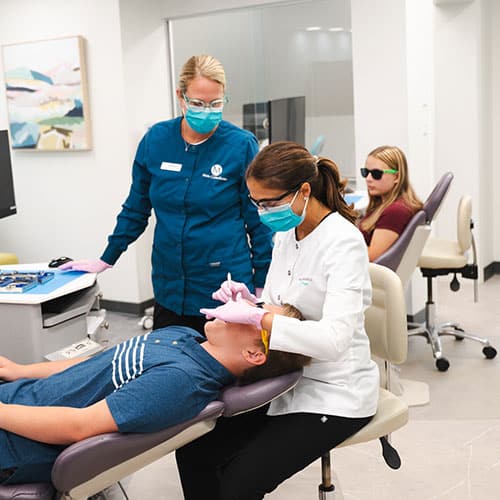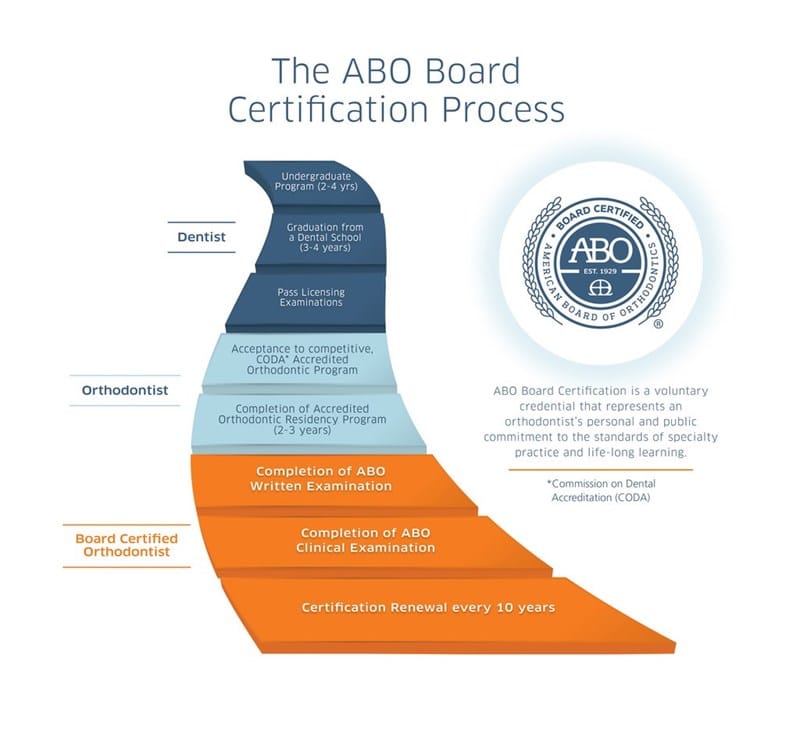Do all orthodontists hold board certification?
No, not all orthodontists pursue board certification, although all must hold licenses to practice. As of now, just over half of all orthodontists have chosen to attain board certification. The American Board of Orthodontics (ABO) certification is a significant achievement that goes beyond the standard two to three years of advanced education required for orthodontic specialization. During this process, orthodontists must demonstrate their real-world patient care accomplishments by providing detailed case reports on a wide range of patient issues. It’s important to note that not all orthodontists choose to pursue board certification, as it’s voluntary. To become ABO board-certified, orthodontists undergo a thorough evaluation, including interviews with a panel of respected examiners who assess their orthodontic knowledge, clinical skills, and decision-making abilities.
What sets apart a board-certified orthodontist from an orthodontist?
A board-certified orthodontist distinguishes themselves from a regular orthodontist by their dedication to achieving a superior level of patient care. While orthodontists are required to have state licensure for practice, board-certified orthodontists voluntarily seek additional qualifications. To earn board certification, they must fulfill precise patient care criteria and undergo a comprehensive evaluation by expert orthodontic examiners. This demanding process guarantees that board-certified orthodontists not only meet educational and practice standards but excel in providing exceptional patient care and treatment results. This commitment offers patients increased confidence in their expertise and dedication.
Steps required to complete the ABO certification process
The ABO certification process has evolved since its inception in 1929 to meet the evolving demands of the field. Today, it comprises several key steps. Initially, orthodontists must pass a comprehensive Written Examination consisting of 240 questions, covering a wide range of orthodontic knowledge. Successful completion of this exam qualifies them for the Clinical Examination phase, during which they present detailed case reports from their practice or residency, showcasing their commitment to exceptional patient care. These cases are meticulously evaluated by a panel of examiners and discussed in an oral examination that tests their proficiency in various academic and clinical areas. Upon successful completion of these rigorous evaluations, orthodontists earn Board Certification for a specified duration. To maintain this certification status, they must undergo Certification Renewal every 10 years, ensuring the continued delivery of top-tier patient care.








